Keynote Speeches
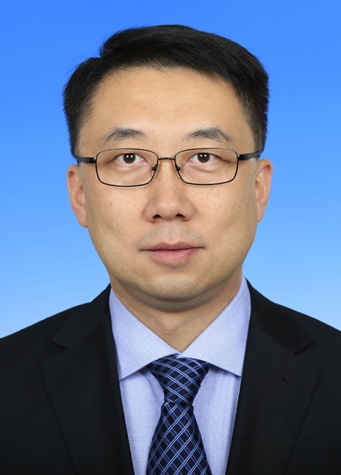 |
Speaker: Dayi Wang (Beijing Institute of Spacecraft System Engineering) |
| Title: Onboard Autonomy Technologies of Space Unmanned System Based on Capability Quantitative Characterization | |
| Abstract: Deep space exploration missions have a critical need for spacecraft’s onboard technologies. Autonomous navigation, autonomous fault diagnosis and system reconfiguration are essential cores, and they are also the premise and guarantee for onboard autonomy. Aiming at the spacecraft with severely limited resources, the reporter proposes autonomous navigation methods based on observability theory and autonomous fault diagnosis and system reconfiguration methods based on diagnosability and reconfigurability theory, taking the quantitative characterization of observation, diagnosis, and reconfiguration capabilities as the innovative breakthrough. It has been successfully applied to China's lunar exploration project and the first Mars exploration, making significant contributions to implementing the safe and reliable onboard autonomy of deep space probes | |
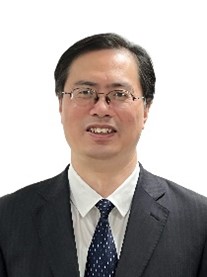 |
Speaker: Shengyuan Xu (Nanjing University of Science and Technology) |
| Title: Robust Adaptive Stabilization of Uncertain Delay Systems | |
| Abstract: Time-delay systems have a wide range of applications in practical applications such as chemical processes, economic systems, remote control, and network control. Therefore, the study on time-delay systems is of both practical and theoretical importance. Recently, there have been many results on the analysis and synthesis of time-delay systems; however, most of these results were obtained based on the assumption that the parameters of the considered system are known. In order to remove this assumption and expand the application scope of theoretical achievements, this talk focuses on the problem of robust adaptive stabilization of a class of parameter uncertain continuous time-delay systems with external disturbances. It is assumed that both the uncertain parameters and the external disturbances are bounded but the upper bound information is unknown. Under the assumption that the uncertainty and disturbances satisfy matching conditions, a robust adaptive controller is designed using the linear matrix inequality method. The simulation result shows that the designed robust adaptive controller gurantees that the closed-loop system converges globally uniformly exponentially to a certain sphere at a certain rate. The effectiveness of the proposed design method is demonstrated through simulation examples. | |
 |
Speaker: Minyue Fu (Southern University of Science and Technology) |
| Title: Beyond Quantization: Beating Encoder Precision in Motion Systems | |
| Abstract: In this talk, we present a novel control design method for high-precision positioning systems. The method aims to eliminate the tracking error caused by measurement quantization present in positioning systems with optical encoders. By employing a combined internal model-based feedback and quantized feedforward design, we are able to make the output of the positioning system asymptotically track any input signal with one or more sinusoidal components of known frequencies and a possible constant component. When combined with a micro actuator, the resulting dual-stage positioning system is able to track any continuous periodic signal with a known period. Besides theoretical guarantees, the proposed design is validated experimentally and proved able to achieve asymptotic tracking error much smaller than the sensor quantization error. | |
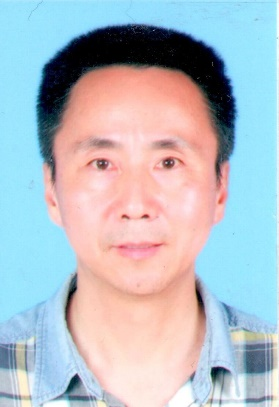 |
Speaker: Weizhou Su (South China University of Technology) |
| Title: Channel Random Transmission Delays and Colored Mean-Square Small Gain Theorem | |
| Abstract: Data transmission delays and packet loss are common phenomena in networked feedback systems, which may not only degrade system performance but also destabilize these systems. Over the past two decades, this issue has been attracted significant research and substantial progress on this issue has be achieved. To cope with challenges induced by random channel delays such as the disorder of data sequences, we propose a linear data receiving strategy. Utilizing the impulse response of random channels with this strategy, we establish a channel model. This novel approach in describing channel uncertainty incorporates both stochastic input-output models and state-space models, providing an effective framework for comprehensively characterizing the data transmission process within the channel. It turns out that the input-output relation of the channel with linear data reception strategy exhibits linear time-invariant properties in both first-order and second-order statistical senses. Based on the statistical characteristics of the channel, we define a metric for the channel’s random deviation — the frequency response of variation, which quantifies the relative magnitude of channel uncertainty at each frequency point in the second-order statistical sense. On this basis, we studied the mean-square stability of networked linear feedback systems over the channels with random data transmission delays or packet loss. We derived the necessary and sufficient conditions for the mean-square stability of networked feedback systems in both input-output and state-space forms. These conditions describe the interplay between the nominal model of the networked system and the frequency response of variation of the channel in mean-square stability. Specifically, to guarantee mean-square stability of such networked feedback systems, the mean-square gain of the loop formed by the nominal system and the channel uncertainty must be less than one. Additionally, these stability conditions reveal that the channel uncertainty induced by random transmission delays can be interpreted as a colored multiplicative operator, characterized by the channel’s frequency response of variation. These mean-square stability conditions is a generalization of the classical mean-square small gain theorem, which we refer to as the colored mean-square small gain theorem. Based on this result, we develop the design approaches of the mean-square stable controller and the mean-square optimal controller for the networked systems. | |
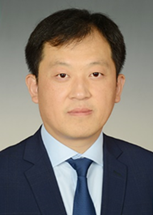 |
Speaker: Guangchen Wang (Shandong University) |
| Title: Robust Optimal Control of Bi-objective LQ System with Noisy Observation | |
| Abstract: This talk is concerned with a kind of partially observable LQ control problem, where the coefficients of cost functional are uncertain representing different market conditions. By virtue of backward separation technique, stochastic maximum principle, as well as filtering method, a feedback form of candidate optimal control is designed. Moreover, through some delicate analysis, the existence of maximal reference probability is certified. Finally, a numerical simulation is presented to authenticate the theoretical results. | |
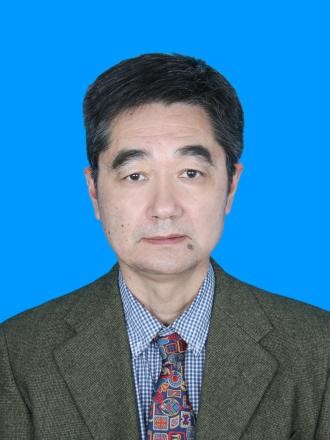 |
Speaker: Bao-zhu Guo (Academy of Mathematics and Systems Science, Chinese Academy of Sciences) |
| Title: Uniform Exponential Stability of Semi-Discrete Scheme for an Axially Moving Euler-Bernoulli Beam under Nonlinear Boundary Control | |
| Abstract: This talk introduces the cyber-physical security problems in the construction of new power system under the background of dual carbon, and the limitations of traditional methods to solve such security problems. Furthermore, three key scientific problems that need to be solved urgently, as well as the main contents and corresponding research programs to solve the above-mentioned key scientific problems are put forward. | |
 |
Speaker: Dong Yue (Nanjing University of Posts and Telecommunications) |
| Title: Cyber-physical Cross-space Understanding and Cooperative Coping Mechanism of New Power System Security | |
| Abstract: This talk introduces the cyber-physical security problems in the construction of new power system under the background of dual carbon, and the limitations of traditional methods to solve such security problems. Furthermore, three key scientific problems that need to be solved urgently, as well as the main contents and corresponding research programs to solve the above-mentioned key scientific problems are put forward. | |
 |
Speaker: Feiqi Deng (South China University of Technology) |
| Title: Modeling, Analysis, Numerical Simulation of the Delayed Stochastic Systems with Applications | |
| Abstract: The understanding of the talker about the stochastic phenomenon and the stochastic system models, as well as the recent progresses achieved by his group about the research on the theory of the delayed stochastic systems, will be introduced, including: 1. Those on the fundamental theories, e.g. the nonnegative semi-martingale boundedness lemma, the improvement on the Doob’s martingale inequality, the implication theorem for the stability of the delayed stochastic systems; 2. Some interesting discoveries on the control theory of the delayed stochastic systems, e.g. the reachability the states of the delayed stochastic systems to zeros, the stabilizability of some uncontrollable systems by delayed feedbacks, the stabilization of the stochastic systems by feedbacks with unbounded or over large time delays; 3. Some progresses on the control theory of the delayed stochastic systems, e.g. the divided feedback stabilization of the stochastic systems, the accurate numerical schemes of the stochastic systems with sampled data with applications, the stability of the networked control systems. Besidess, some challenges will be presented, e.g. the event-triggering control of the stochastic systems, the boundedness of the solutions of the stochastic systems by deterministic bounds, etc. Communications on related topics with the participants are expected. | |
 |
Speaker: Jiandong Wang (Shandong University of Science and Technology) |
| Title: Parameter Identification and Uncertainty Quantification for Generalized Hammerstein Models | |
| Abstract: A generalized Hammerstein model consists of a nonlinear static submodel and multiple dynamic linear submodels. Such a model can well describe a class of nonlinear systems whose static gains and dynamic characteristics change at different operating points. It is important for the control, prediction and optimization of these nonlinear systems to achieve the parameter identification and uncertainty quantification for generalized Hammerstein models. By assuing specific model structures of generalized Hammerstein models, a method is proposed for estimating unkown model parameters. By constructing a fuzzy set with multiple suboptimal models, the modeling uncertainty is quantified to measure the influence of model structure deviations and unknown noise distributions. The effectiveness of the proposed methods are demonstrated and verified via numerical and actual examples such as water tank systems and house heating systems. | |
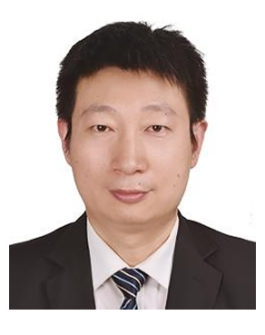 |
Speaker: Changchun Hua (Hebei University of Science and Technology) |
| Title: High-Performance Control and Applications of Networked Teleoperation Systems | |
| Abstract: Networked teleoperation systems, which maximize the advantages of both human operators and mechanical systems, have been widely applied in fields such as space exploration, underwater operations, and remote medical procedures. Stability and transparency are the two most critical performance metrics in teleoperation systems. These systems rely on bidirectional information transmission over networks, and the complexity of network environments poses new challenges for performance analysis and high-performance control. To address these challenges, a new mathematical model of the teleoperation system is developed based on the complex network environment. Multi-performance analyses of the teleoperation system are conducted based on this model, illustrating the impact of network parameters on system performance. A novel method for designing high-performance controllers is proposed by integrating network parameters. Finally, the application of teleoperation systems in operating remote excavators, firefighting robots, and other fields is discussed. | |
 |
Speaker: Zhaoshui He (Guangdong University of Technology) |
| Title: Key Technologies and Research Advances of Intelligent Acupuncture Robot | |
| Abstract: Acupuncture is one of Chinese treasures. It is very efficient for various diseases but with no side effects so that it is recommended by the World Health Organization and has become popular around the world. For this reasion, there is a growing demand for acupuncture but there are an insufficient number of senior acupuncturists. To solve this problem, we have carried out the development of acupuncture robot. This talk mainly illustrates four key technologies and four advances of acupuncture robot as follows: 1. digitization of acupuncture manipulation and experience automation based on database and human acupoint knowledge graph; 2. acupoint automatic recognition and precise position based on multimodal image deep learning; 3. state perception and control for the accurate and safe manipulation of acupuncture robots; 4. intelligent evaluation and safety verification of acupuncture curative effect based on nonlinear modeling by deep neural network. | |
 |
Speaker: Keyou You (Tsinghua University) |
| Title: Learn to Trim Multiparametric Quadratic Programs | |
| Abstract: In a wide range of applications, we are required to use limited resources to solve a sequence of convex multiparametric quadratic programs (mp-QPs) with many linear inequalities. This is a nontrivial task and has been an active topic for decades in control and optimization communities. Observe that the main computational cost of existing solution algorithms lies in addressing massive inequality constraints, though their majority are redundant and removing them will not change the optimal solution. This work learns from the previously solved mp-QP(s), based on which we propose novel methods to reliably and cheaply trim (unsolved) mp-QPs with new parameter vectors via constraint removal, and thus the trimmed mp-QPs can be much easier to solve. Then, we extend to trim mp-QPs of the linear quadratic model predictive control (MPC). Importantly, both online and offline solved mp-QPs can be used to adaptively trim mp-QPs in the closed-loop system. We show that the number of linear inequalities remaining in the trimmed mp-QP decreases to zero in a finite time-step, which can be further reduced by increasing offline computation. Finally, numerical results are included to demonstrate the advantages of our trimming method in removing redundant constraints. | |
 |
Speaker: Tianshi Chen (Chinese University of Hong Kong, Shenzhen) |
| Title: Regularized System Identification | |
| Abstract: System Identification is about building mathematical models of dynamic systems based on observed input-output signals. It is a well-established topic in the field of automatic control and is also a basic tool in industrial practice. However, system Identification has largely been sticking to the maximum likelihood (or related) framework. In order to deal with the increasing demands, great efforts need to be done to absorb the essence of new techniques from other fields for pushing forward system identification methodologies. One such recent effort is the investigation of the so-called regularization methods. The regularization method is widely used in statistics and machine learning for handling the bias-variance tradeoff and inducing sparsity. Recent efforts show that regularization methods can outperform the standard ones for problems of model estimation and finding sparse solutions in System Identification. The purpose of this talk is to introduce the basic ideas of regularization methods for system identification. | |
 |
Speaker: Lu Liu (City University of Hong Kong) |
| Title: Event-Triggered Cooperative Control of Multi-Agent Systems | |
| Abstract: Cooperative control of multi-agent systems has attracted significant interest in the systems and control community due to its potential for impactful real-world applications, such as search and rescue by a team of unmanned ground/aerial vehicles, and ocean sampling using a fleet of underwater gliders. In this talk, we will present the cooperative output consensus problem for heterogeneous linear multi-agent systems utilizing an event-triggered control framework. We will commence with an overview of the event-triggered control paradigm, emphasizing its efficiency and practicality by reducing unnecessary communication and control updates. Following this, we will present a novel distributed event-triggered control strategy tailored for the cooperative output consensus of multi-agent systems under switching network topologies. This strategy ensures that output consensus is achieved asymptotically while reducing communication demands, thus conserving valuable system resources. Notably, the continuous monitoring issue and Zeno behavior—the phenomenon where an infinite number of events are triggered in a finite time, potentially causing system instability—can be avoided. | |
 |
Speaker: Zhiqiang Zuo (Tianjin University) |
| Title: Energy Scheduling and Collaborative Control of Solar Powered Unmanned Aerial Vehicle Energy System | |
| Abstract: The performance of the energy system is a key factor in determining the long-term reliable effectiveness of the aircraft. The energy source for unmanned aerial vehicles during the day is solar energy, and the energy source at night is the energy stored by energy storage batteries during the day. Therefore, improving the power supply capacity of the energy storage battery pack and enhancing the energy flow efficiency of the system are the focus of research on unmanned aerial vehicle energy systems. This report aims to introducing the design requirements of unmanned aerial vehicles for energy systems, including energy balance, power balance, energy storage balance, and high energy flow efficiency. It focuses on the latest developments in energy system modeling, distributed collaborative control, intelligent optimization, and autonomous decision-making. | |
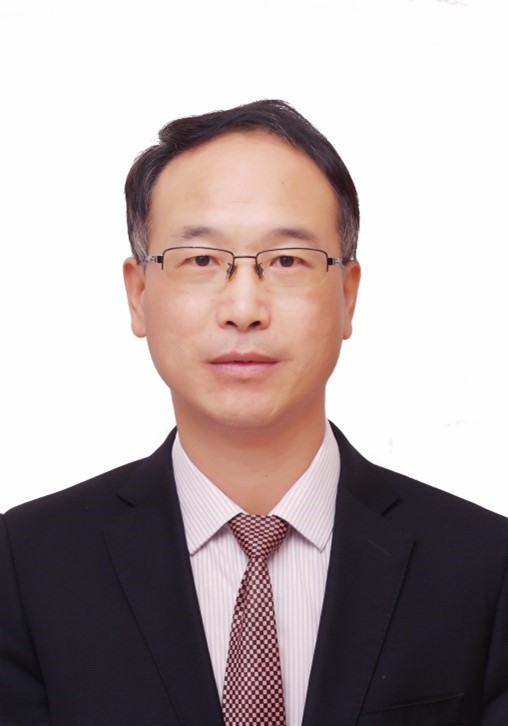 |
Speaker: Yanjun Shen (China Three Gorges University ) |
| Title: Finite-time Stability and its Applications | |
| Abstract: Finite time stability is that a Lyapunov asymptotical system can reach its equilibrium point in finite time. In the presence of interference and uncertainty, a finite system has faster convergence near the equilibrium point, and has better robustness and anti-interference ability. This report will introduce several sufficient conditions for finite time stability. Based on these sufficient conditions, we will talk about solving time-varying quadratic programs with finite-time recurrent neural network, and finite time observer design for nonlinear systems with lower-triangular form. | |
